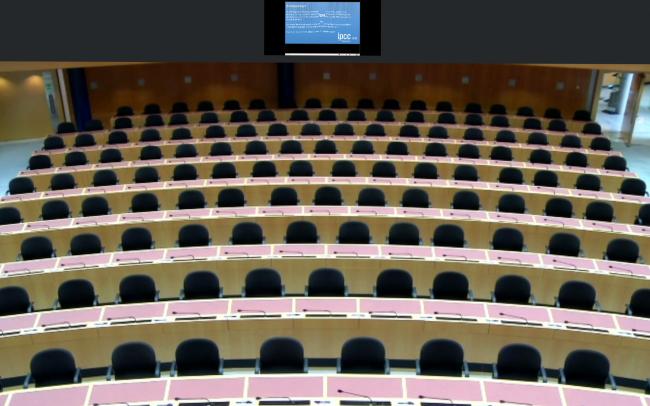The resumed 53rd session of the Intergovernmental Panel on Climate Change (IPCC-53 bis) opened on Monday, 22 March, for a weeklong virtual meeting.
In opening remarks, Petteri Taalas, Secretary-General, World Meteorological Organization (WMO), underscored that the world as a whole has already reached 1.2°C of warming and breached 410 parts per million of atmospheric CO2. While the “atmospheric situation” is not encouraging, he welcomed political momentum towards carbon neutrality. He urged avoiding delay in publishing IPCC reports, noting these are a critical input to negotiations under the UN Framework Convention on Climate Change (UNFCCC).
Inger Andersen, Executive Director, UN Environment Programme (UNEP), underscored the importance of both solidarity and science to overcome the COVID-19 pandemic and ensure long-term sustainability. She pointed to interlinkages between the climate, nature, and pollution crises, and highlighted the IPCC provides critical impetus to address these. She called for translating net-zero targets into action on the ground and for ensuring pandemic recovery packages serve to pave the way to a climate-safe and just future for all.
Delegates engaged in a lengthy exchange over the proposed agenda and organization of work for the meeting. Points raised related to, among others: reducing the number of agenda items; whether written input is sufficient to address progress reports; how and when to move forward with the review of principles governing the IPCC’s work; and prioritizing the sixth Assessment Report (AR6) strategic planning schedule.
Several African delegations stressed the need to respect IPCC procedures that call for all documents to be made available at least four weeks prior to a meeting, underscoring their delegations did not have sufficient time for national coordination.
Ultimately, the Panel agreed on the following agenda:
- Adoption of the IPCC-52 report;
- Progress reports from the three IPCC Working Groups (WGs), the Task Force on National Greenhouse Gas Inventories, and on the AR6 Synthesis Report (SYR);
- AR6 strategic planning schedule; and
- Admission of observer organizations.
After several delegations noted inaccuracies in the draft IPCC-52 report, delegates agreed to return to this item once corrections are incorporated.
Valérie Masson-Delmotte, WG I Co-Chair, provided a progress report from WG I and announced the draft for final government distribution had just been finalized.
In ensuing discussions, several delegates expressed their gratitude to the authors for their tremendous efforts and flexibility in adjusting their mode of operation to minimize pandemic-related delays. India and Saudi Arabia underscored the need for WG I to focus on physical science and avoid socio-economic issues, and urged greater attention to the traceability between summary products and the findings of the underlying report. Co-Chair Masson-Delmotte highlighted the synthesis work done in the WG I Technical Summary to integrate multiple lines of evidence, and confirmed that WG I focuses on the physical response to a broad range of emissions scenarios, while characteristics of underlying scenarios are addressed by WG III and in the SYR. She emphasized that the geographical diversity of WG authors is a strong asset for the quality of the report. The Panel took note of the progress report.





